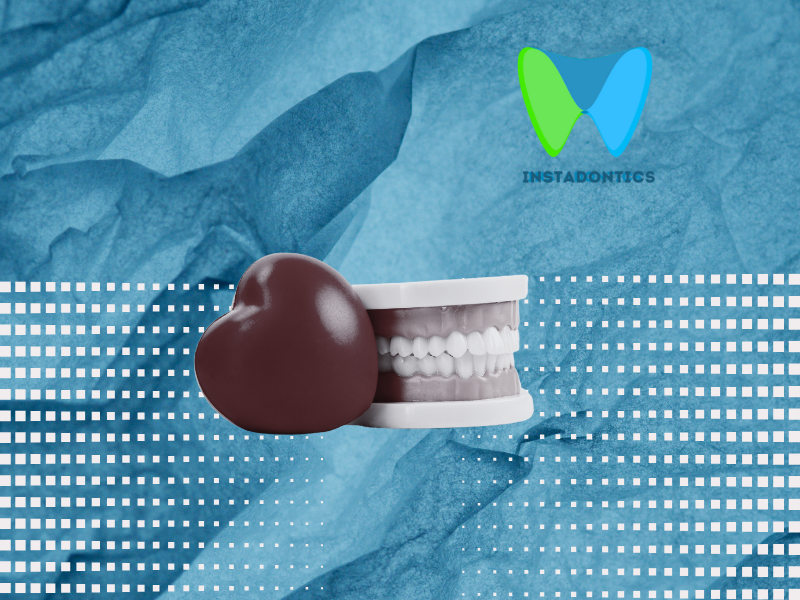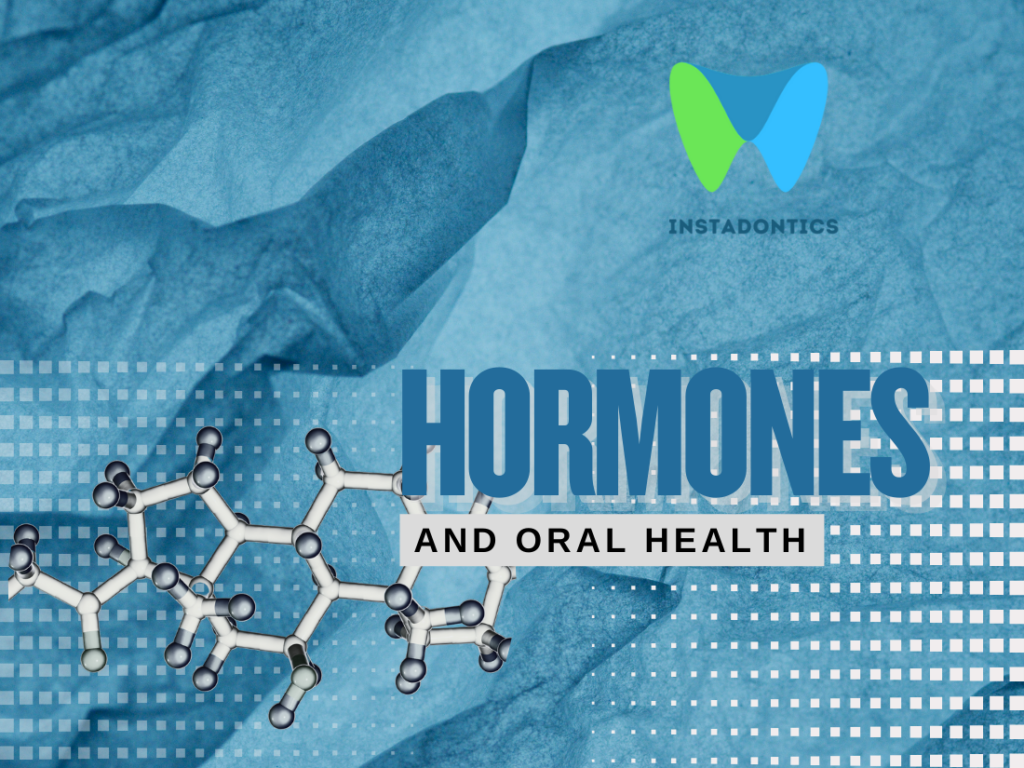Inflammatory Bowel Disease (IBD) encompasses chronic inflammatory conditions of the gastrointestinal tract, primarily Crohn’s disease and ulcerative colitis. While these diseases are often associated with digestive symptoms, they can also significantly impact the oral cavity. Understanding how IBD affects oral health is crucial for comprehensive disease management and overall well-being.
Causes and Risk Factors
The exact cause of IBD is not fully understood, but it is believed to result from a combination of genetic, environmental, and immune system factors. Some risk factors that can exacerbate oral health issues in individuals with IBD include:
- Genetics: A family history of IBD increases the risk.
- Immune System: An abnormal immune response to gut bacteria can contribute to inflammation.
- Medications: Some IBD medications can cause dry mouth or increase susceptibility to oral infections.
- Nutritional Deficiencies: Deficiencies in vitamins and minerals, such as vitamin B12, folic acid, and iron, can lead to oral health problems.
- Poor Oral Hygiene: Increases the risk of dental issues and infections.
- Smoking: Exacerbates both IBD and oral health problems.
How Does IBD Affect the Mouth?
IBD and Oral Health | Many people with IBD experience oral symptoms at some point. In fact, for some, mouth problems may be among the first signs of the disease, sometimes appearing even before digestive symptoms. Oral manifestations can range from mild discomfort to more severe lesions that interfere with eating, speaking, or daily life.
Inflammatory Bowel Disease (IBD), which includes Crohn’s disease and ulcerative colitis, is a chronic condition that primarily affects the digestive tract but can also have significant effects on oral health. Many people with IBD experience mouth problems such as canker sores (aphthous ulcers), gum inflammation, and swelling of the lips or cheeks. These oral symptoms can sometimes appear before digestive symptoms, serving as early warning signs of IBD. The chronic inflammation and immune changes associated with IBD, along with potential nutritional deficiencies and side effects from medications, all contribute to these mouth issues. Oral complications can make eating painful and may affect nutrition, which can worsen overall health and IBD symptoms. Maintaining good oral hygiene, staying hydrated, eating a balanced diet, and seeing a dentist regularly are important steps for people with IBD to manage oral health and improve quality of life.
The reasons for these oral symptoms are complex. Chronic inflammation, immune system changes, nutritional deficiencies, and side effects of medications all play a role. When the body’s immune system is constantly activated by IBD, it can trigger inflammation in other tissues, including the mucous membranes of the mouth.
Common Oral Manifestations of IBD
How Inflammatory Bowel Disease Affects the Oral Cavity | IBD can lead to several oral health issues, which may manifest as early indicators of the disease or during flare-ups. Here are some common oral manifestations:
Some of the most frequent oral issues seen in people with Crohn’s disease or ulcerative colitis include:
- Aphthous ulcers (canker sores): These are small, round or oval sores with a white or yellow center and a red border. They can be very painful and may occur on the inside of the lips, cheeks, tongue, or soft palate. In people with IBD, these ulcers tend to be larger, more frequent, and slower to heal than those in the general population.
- Swelling and inflammation: The gums, lips, or cheeks may become swollen, red, and tender. In Crohn’s disease, a specific type of swelling called “cobblestoning” can occur, where the tissue looks bumpy or uneven.
- Oral Candidiasis (Thrush): A fungal infection leading to white patches on the tongue and inside the cheeks.
- Angular cheilitis: This is inflammation and cracking at the corners of the mouth, often due to nutritional deficiencies (such as iron, folic acid, or vitamin B12) that are more common in people with IBD.
- Gingivitis and periodontitis: Chronic inflammation can make the gums more susceptible to infection, leading to redness, bleeding, and, in severe cases, gum disease that may threaten the teeth.
- Pyostomatitis Vegetans: A rare condition characterized by multiple pustules and ulcers in the mouth, often associated with ulcerative colitis.
- Glossitis: Inflammation of the tongue, which may appear red, swollen, and smooth.
- Dry Mouth (Xerostomia): Reduced saliva production, leading to a dry and uncomfortable mouth, increasing the risk of tooth decay and gum disease.
- Other lesions: Some people develop tags, fissures, or pus-filled nodules in the mouth, particularly with Crohn’s disease. Rarely, there may be white patches or other changes related to medications or immune response.
Why Oral Health Matters in IBD
Oral health is an important part of overall well-being, but it is especially critical for those with IBD. Mouth sores and gum disease can make it difficult to eat or drink, leading to poor nutrition, which can worsen IBD symptoms. Pain or discomfort in the mouth can also affect quality of life, making it harder to speak, socialize, or maintain a healthy diet.
In some cases, oral symptoms can serve as early warning signs of a flare-up or indicate that the disease is not well controlled. Dentists and doctors can work together to identify these signs and adjust treatment as needed.
Managing Oral Health with IBD
If you have IBD, taking care of your mouth is an essential part of managing your condition. Here are some practical steps:
- Maintain good oral hygiene: Brush your teeth twice a day and floss daily to prevent gum disease and tooth decay. Use a soft-bristled toothbrush and gentle toothpaste if your mouth is sore.
- Stay hydrated: Dry mouth can worsen oral problems, so drink plenty of water throughout the day.
- Eat a balanced diet: Proper nutrition supports oral and overall health. If mouth sores make eating difficult, choose soft, bland foods and avoid spicy or acidic items that can irritate the mouth.
- See your dentist regularly: Routine dental checkups can catch problems early and help you manage oral symptoms before they become severe.
- Communicate with your healthcare team: Let your doctor and dentist know about any new or worsening oral symptoms. Sometimes, adjusting your IBD medication or addressing nutritional deficiencies can improve oral health.
Inflammatory Bowel Disease is more than just a digestive problem—it can affect many parts of the body, including the mouth. Oral symptoms are common in IBD, and they can have a significant impact on comfort, nutrition, and quality of life. By understanding the link between IBD and oral health, and by working closely with your healthcare providers, you can take steps to minimize oral complications and support your overall well-being. Regular oral care and open communication with your medical team are key to living well with IBD.
Treatment Options for Oral Manifestations
Managing oral health issues related to IBD involves both treating the underlying IBD and addressing specific oral conditions. Here are some common treatment approaches:
Medications:
The same medications used to control IBD—such as anti-inflammatory drugs, immunosuppressants, and biologic therapies—can also help decrease inflammation in the mouth. By managing the underlying disease, these treatments often reduce oral symptoms like swelling or ulcers.
Topical Treatments:
For specific mouth problems like canker sores or other painful lesions, doctors may recommend corticosteroid gels or medicated mouth rinses. These are applied directly to the affected area to help reduce pain and speed up healing.
Antifungal Medications:
Sometimes, people with IBD develop oral yeast infections (oral candidiasis). Antifungal medicines, which come as lozenges, tablets, or special mouth rinses, are used to treat these infections and clear up symptoms.
Nutritional Supplements:
IBD can lead to deficiencies in important vitamins and minerals, such as vitamin B12, iron, or folic acid, which may worsen oral health. Taking nutritional supplements as advised by your healthcare provider can help address these deficiencies and improve oral health.
Professional Dental Care:
Regular visits to the dentist for cleanings and check-ups are important for people with IBD. Dental professionals can monitor your oral health, catch problems early, and provide treatments to help prevent or manage oral complications.
Medications Used for IBD Oral Manifestations
1. Systemic Medications for IBD (which also help oral symptoms):
- Corticosteroids (e.g., prednisone): Reduce inflammation throughout the body, including the mouth.
- Immunosuppressants (e.g., azathioprine, methotrexate): Suppress the immune system to control IBD and can help oral lesions heal.
- Biologic agents (e.g., infliximab, adalimumab): Target specific parts of the immune system and may improve both gut and oral inflammation.
2. Topical Treatments for Oral Lesions:
- Topical corticosteroids (e.g., triamcinolone acetonide dental paste, hydrocortisone lozenges, dexamethasone mouth rinse): Applied directly to mouth ulcers to reduce pain and inflammation.
- Topical immunosuppressants (e.g., tacrolimus ointment): Sometimes used for severe or persistent oral lesions.
3. Antifungal Medications (for oral thrush):
- Nystatin suspension (mouth rinse)
- Clotrimazole troches
- Fluconazole tablets (for more severe cases)
4. Analgesic Mouthwashes:
- Mouthwashes containing lidocaine or benzydamine can help relieve pain from mouth ulcers.
5. Nutritional Supplements:
- Iron, folic acid, vitamin B12, or other supplements may be prescribed if deficiencies are causing or worsening oral symptoms.
Note:
The choice of medication depends on the specific oral issue, its severity, and the overall management of IBD. Always consult your gastroenterologist or dentist before starting any new treatment for oral symptoms.
Preventative Measures
Preventing oral health issues in individuals with IBD requires a proactive and comprehensive approach. Here are some effective preventive measures:
- Maintain Good Oral Hygiene: Brush twice a day with fluoride toothpaste, floss daily, and use an antimicrobial mouthwash to reduce the risk of infections.
- Stay Hydrated: Drink plenty of water to combat dry mouth and promote saliva production.
- Healthy Diet: Consume a balanced diet rich in fruits, vegetables, and whole grains, and avoid foods that can trigger IBD symptoms.
- Avoid Tobacco and Alcohol: These substances can exacerbate oral health issues and IBD symptoms.
- Regular Dental Visits: Schedule check-ups every six months, or more frequently if recommended by your dentist, to detect and treat oral health issues early.
FAQs & Myths
Q: Can IBD cause bad breath?
- A: Yes, IBD can lead to bad breath due to oral infections, dry mouth, or gastrointestinal issues.
Q: Are mouth sores common in people with IBD?
- A: Yes, mouth sores, including canker sores and other oral lesions, are common in individuals with IBD.
Q: Can treating IBD improve oral health?
- A: Managing IBD effectively can help reduce oral inflammation and improve overall oral health.
Q: Is dry mouth a common issue for people with IBD?
- A: Yes, dry mouth is a common issue due to medications and the disease itself, which can reduce saliva production.
Q: Can IBD medications cause oral health problems?
- A: Some IBD medications can have side effects that impact oral health, such as dry mouth or increased susceptibility to infections.
Q: How often should someone with IBD visit the dentist?
- A: Individuals with IBD should visit the dentist at least every six months, or more frequently if recommended by their dentist.
Q: Can stress from having IBD impact oral health?
- A: Yes, stress can weaken the immune system further and exacerbate oral health issues. Managing stress through support and counseling is important.
Q: Can dietary changes help with oral health in IBD patients?
- A: Yes, a balanced diet that avoids trigger foods can help manage both IBD and related oral health issues.
Q: Are there any specific dental products for IBD patients?
- A: There are no specific dental products exclusively for IBD patients, but using fluoride toothpaste, antimicrobial mouthwash, and products for dry mouth can be beneficial.
Q: Can oral health issues be the first sign of IBD?
- A: Yes, in some cases, oral health issues like canker sores or gum inflammation can be among the first signs of IBD.
Q: Can IBD affect the success of dental implants?
- A: With proper medical management and good oral hygiene, individuals with IBD can successfully receive dental implants.
Q: Are people with IBD more prone to oral cancers?
- A: While IBD itself is not directly linked to oral cancers, chronic inflammation and certain medications may increase the risk.
Q: Can mouth rinses help with IBD-related oral health issues?
- A: Yes, antimicrobial and fluoride mouth rinses can help reduce the risk of infections and tooth decay.
Q: How can caregivers assist IBD patients with oral care?
- A: Caregivers can help by reminding patients to maintain their oral hygiene routine, assisting with brushing and flossing if needed, ensuring they attend regular dental appointments, and encouraging a healthy diet and hydration.
Oral health is an integral part of overall health, especially for individuals living with Inflammatory Bowel Disease (IBD). The unique challenges posed by IBD and its treatments can significantly impact oral health, making it essential to adopt a comprehensive approach to care.
- Dysgeusia: Causes, Symptoms, and Management
- Signs You Need to Visit Your Dentist
- Understanding Tooth Sensitivity
- The Link Between Diabetes and Gum Disease
- How Diet Affects Teeth Grinding | The Hidden Connection
- The Best Mouthwash for Gum Disease
- Can Tooth Pain Cause Ear Pain?
- Options for Replacing Missing Teeth



